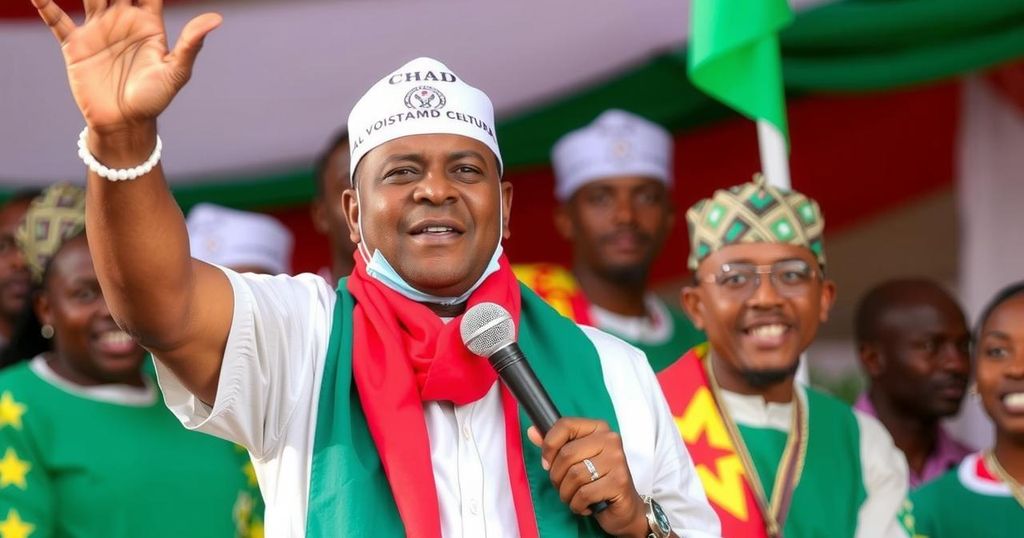Chad’s Ruling Party Gains Parliamentary Majority Amid Opposition Boycott

Chad’s ruling Patriotic Salvation Movement won 124 out of 188 seats in recent parliamentary elections, which were boycotted by major opposition parties. The voter turnout was 51.5%. This election is seen as a consolidation of President Mahamat Idriss Deby’s power, occurring amid ongoing security challenges and a controversial democratic transition.
In a significant political development in Chad, the ruling Patriotic Salvation Movement secured a dominant position in the parliamentary elections held last month, winning 124 out of 188 seats. This election marked the first parliamentary vote in over a decade and occurred amid a boycott from the principal opposition parties, who criticized the election as a mere facade. The electoral commission announced a voter turnout of 51.5%, indicating a moderate level of public engagement despite the boycott.
These elections, which included regional and municipal components, represent the concluding phase of Chad’s transition towards democracy following the military ascent of Mahamat Idriss Deby in 2021, post the death of his father, a long-serving president. Under Deby’s assertion, this election could herald a new era of decentralization within the nation, aimed at distributing authority to regional and municipal governments. However, the opposition, particularly the Transformers party led by Succes Masra, remained skeptical, citing concerns of electoral integrity and credibility, recalling a disputed presidential vote from the previous year.
This electoral event unfolds against a backdrop of various national challenges, including ongoing threats from Boko Haram in the Lake Chad region and the deterioration of military affiliations with France, historically Chad’s key ally. The results are pivotal in determining the future political landscape, as they might further consolidate President Deby’s grip on power amidst doubts regarding the legitimacy of the electoral process.
Chad has undergone significant political transformations in recent years, particularly following the military coup led by Mahamat Idriss Deby after the death of his father, Idriss Deby Itno, who had ruled for thirty years. The country has been striving to establish a democratic framework after a prolonged period of military governance. The recent parliamentary election was the first in over a decade and was accompanied by significant opposition boycotts, raising questions about the electoral process and the overall political climate in Chad.
The recent parliamentary elections in Chad have resulted in a clear victory for the ruling party amidst widespread opposition boycotts. This outcome is seen as a reinforcement of President Mahamat Idriss Deby’s authority during a critical phase in the country’s transition to democracy. However, significant challenges remain, including security issues and questions regarding the credibility of the electoral process. The future political landscape in Chad will depend on how these dynamics evolve in the coming months.
Original Source: www.seattletimes.com








